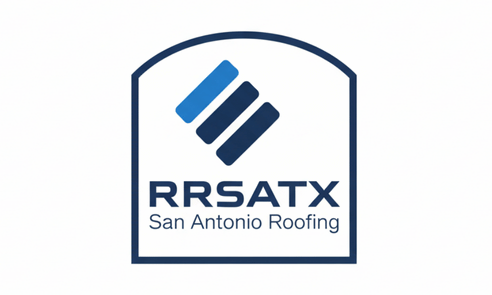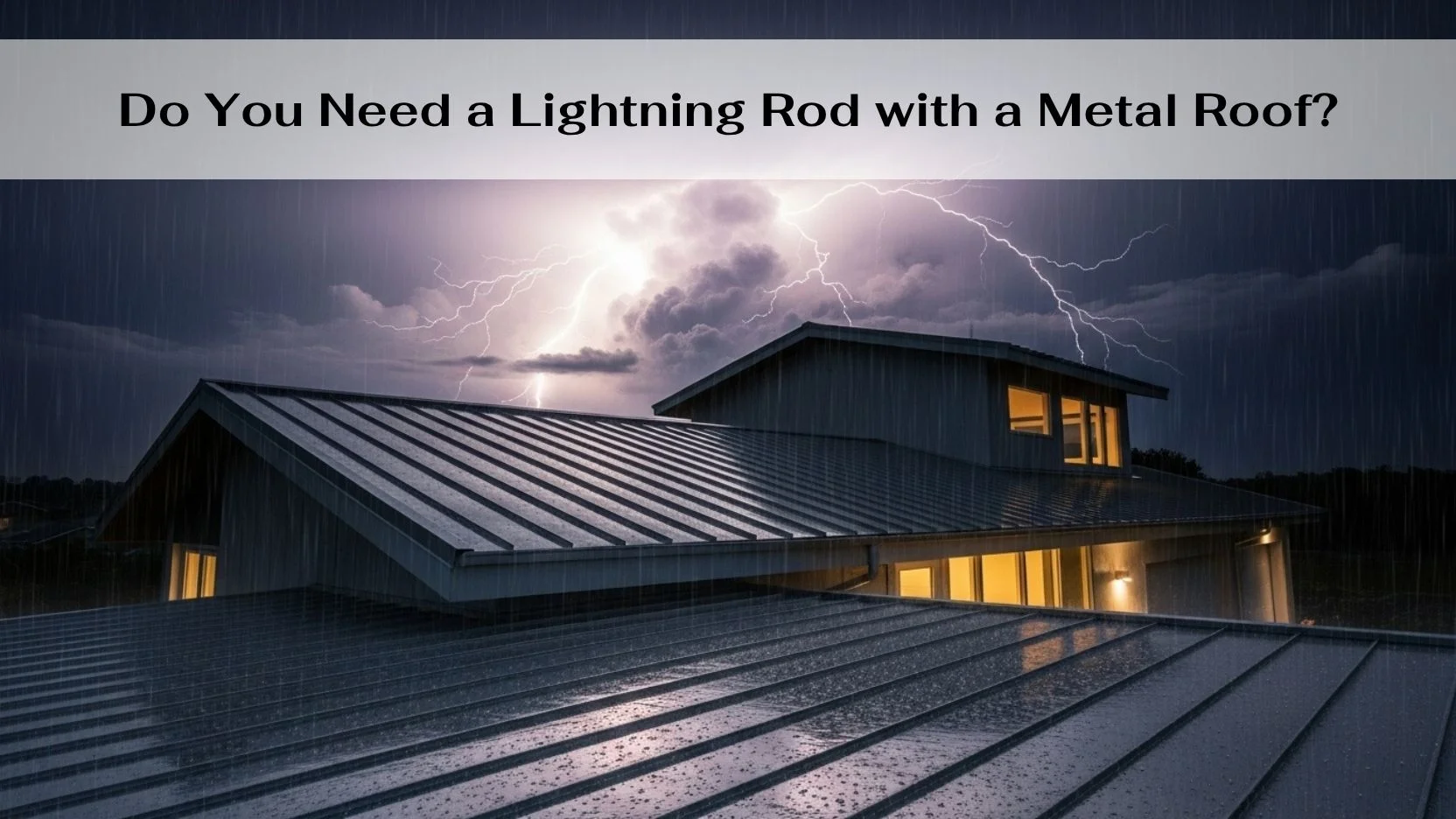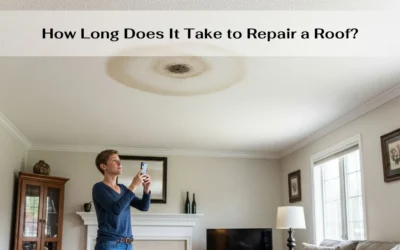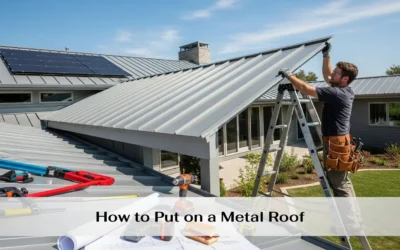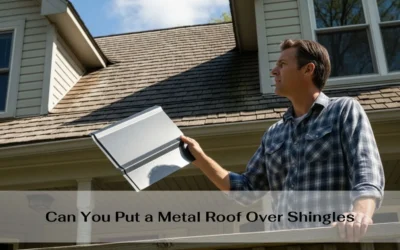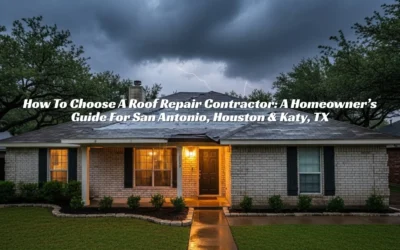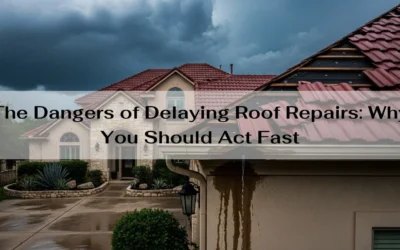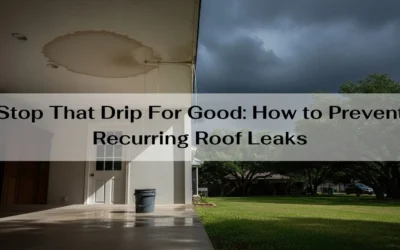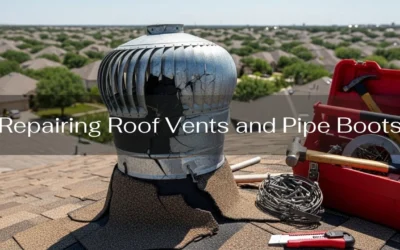Many homeowners believe that a metal roof attracts lightning. It’s a common fear — after all, metal conducts electricity, right? But the truth is not that simple. So, do you really need a lightning rod if you have a metal roof?
This post breaks down the science and clears up myths. You’ll learn what actually causes lightning strikes, how metal roofs handle them, and when a lightning rod might make sense. By the end, you’ll know how to keep your home safe and feel confident about your roof choice.
Myth vs. Fact: “Metal Roof = Lightning Magnet?”
Myth: Metal roofs attract lightning because they’re made of metal.
Fact: Lightning is not attracted to metal. It is attracted to the highest object in an area. Your roof’s material doesn’t make lightning more or less likely to strike.
Experts from DECRA explain that metal roofs are no more likely to be struck than asphalt, tile, or wood roofs. What matters is elevation, geography, and storm activity — not the material.
One homeowner shared, “I worried my new metal roof would act like a lightning magnet. Turns out, the science says it doesn’t.”
How a Metal Roof Behaves During a Lightning Strike
If lightning does strike, a metal roof can actually reduce danger. Metal conducts electricity, spreading the charge over a wide area. Because it’s non-combustible, it lowers the risk of fire.
According to DECRA’s lightning study, a well-installed metal roof may even be safer than traditional materials. And the Metal Construction Association adds that proper grounding is key — a good contractor should ensure the roof system has electrical continuity.
A homeowner once said, “My roof got hit during a storm. The electrician said the metal helped spread the energy and prevented a fire. That’s all the proof I needed.”
When Might You Still Need a Lightning Rod System?
Lightning rods are useful in certain cases, especially for homes at higher risk. You might consider one if:
- Your house is the tallest structure in the area.
- You live in a region with frequent lightning storms.
- You have sensitive electronics or expensive equipment.
- Your insurance or local building code requires it.
The team at DLV Roofing says most average homes with metal roofs don’t need a lightning rod system. But if your home stands alone on a hill or open field, a rod may be smart protection.
Installing a lightning protection system costs extra and requires periodic checks. Stay Dry Roofing notes that while it adds safety, it’s not a must for everyone.
Practical Safety Steps Beyond Lightning Rods
Even if you skip a lightning rod, there are other smart steps:
- Ensure proper grounding: Ask your roofer to confirm your roof system is grounded correctly.
- Install surge protection: This guards your electronics against power spikes.
- Keep trees trimmed: Avoid tall trees close to your home that might act as lightning paths.
- Schedule roof checks: Routine inspections can spot grounding issues early.
One homeowner shared, “We didn’t add a lightning rod, but we did install whole-house surge protection. It gave us peace of mind.”
Conclusion
For most homeowners, a metal roof does not mean you need a lightning rod. Metal roofs are safe, durable, and fire-resistant. The key is good installation and grounding.
If your home is tall, isolated, or in a high-risk lightning area, talk to a local roofing or lightning protection expert. Otherwise, rest easy — your metal roof is already built to handle the storm.
With 25 years of experience in roof repair, replacement, and leak fixes, RRSATX is the expert to call. Contact us today for more details
